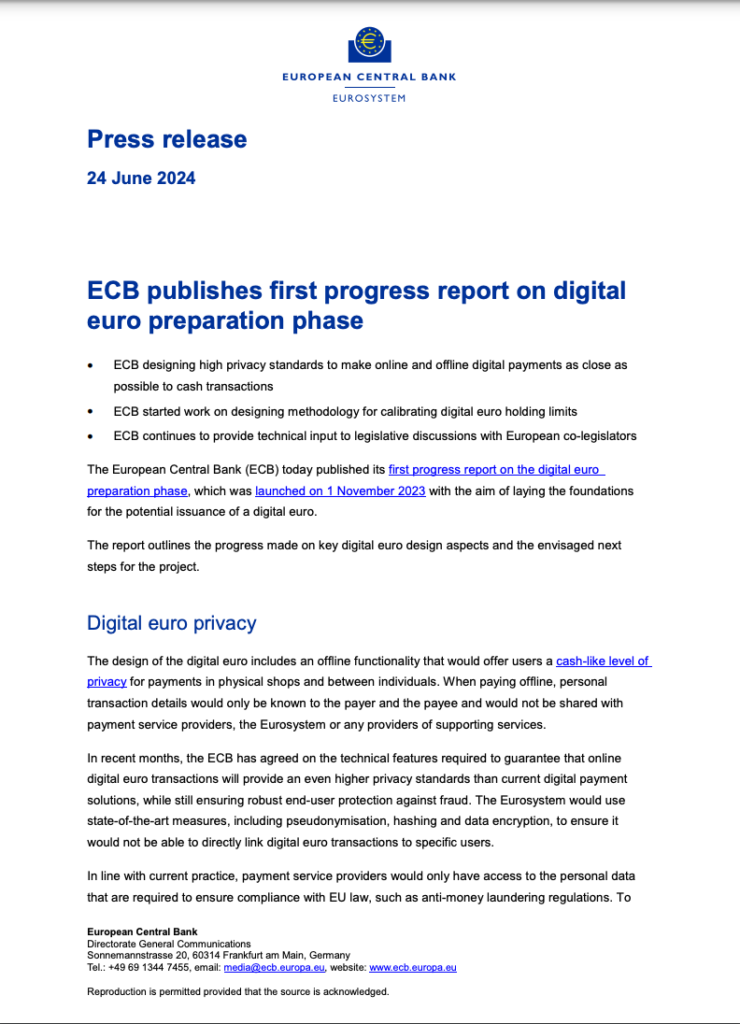The European Central Bank (ECB) has released its first progress report on the development of a central bank digital currency (CBDC) as of June 24. A key focus of the report is on privacy. The ECB promises to implement pseudonymization, hashing functions, and encryption to protect individuals’ transactions from being tracked.
Data Consent and Offline Transactions
Under the ECB’s CBDC framework, payment service providers will not be allowed to use consumer financial data for commercial purposes without explicit consent from the individuals. The report also outlines methods for conducting offline transactions. These transactions could occur directly between parties without a third-party intermediary, settling on payment devices like smartphones and new “smart cards.” These cards might be battery-powered or use bridging relays to sync transactions to the CBDC blockchain.

ECB’s Timeline for Development
The report concludes by setting a timeline for the newly established “Rulebook Development Group.” This group is tasked with finalizing the first draft of the CBDC’s technical and regulatory framework by the end of 2024. The group will consult with service providers, infrastructure builders, and the public before finalizing the draft.
Privacy Concerns and Anti-CBDC Sentiment
Privacy issues and the potential for government overreach remain major concerns with the widespread use of CBDCs. At the recent Oslo Freedom Forum, speakers highlighted instances where governments have seized individuals’ assets to suppress dissent, showcasing the risks of government-controlled digital currencies.
A 2023 report from Trezor revealed that 73% of respondents are uneasy about the privacy issues associated with CBDCs and the control they could give governments over consumer behavior. Critics argue that these risks outweigh the benefits of a CBDC, especially when stablecoins are considered, raising questions about the necessity and broader adoption of central bank digital fiat.


